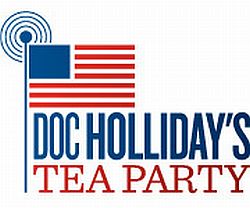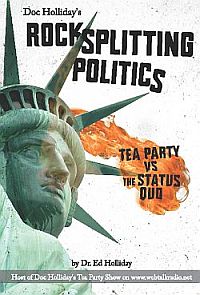Main Street Journal: Online Exclusive: Tomeka Hart: Who Runs the World?


Who Runs the World?
By: Tomeka Hart
Â
Women make up 51 percent of the nation, 51 percent of Tennessee, 52 percent of Shelby County, and 53 percent of Memphis. Given this, you might be inclined to agree with Beyonce when she boasts, “Who runs the world? Girls!”
Not so fast!
While we make up more than half of the nation, the state, the county and the city, women are sorely underrepresented in elected office. Women comprise a mere 17 percent of the United States Congress, 22 percent of the nation’s statewide elected executive offices, 18 percent of the Tennessee General Assembly, and 25 percent of the local elected offices (including Memphis City Council, County Commission, Shelby County School Board, county charter offices, District Attorney, court clerks, and county and municipal mayors). I hope these paltry numbers cause you to ask the question: Why are so few women in politically elected positions?
The underlying answer for the disproportionately low number of women is simple—women are much more likely than men to choose not to run for office. Studies show that the reasons women run less often than men include family responsibilities, assuming they lack the qualifications to run for or serve in elected office, the negative perceptions associated with politics, or because they were not recruited or encouraged to enter the political arena.
Thankfully, all of these potential obstacles for more women to consider political office can be overcome. First, women who are discouraged to seek political office due to family can look to other women as role models. Many women who are married and/or have children have successfully run for office at all levels, including several currently serving in Memphis and Shelby County. These women demonstrate how it is possible to be an effective elected leader and maintain their family responsibilities at the same time.
Now let us address the questioning of qualifications. Professor Jennifer Lawless, Director of the Women & Politics Institute at American University, studied men and women with the same credentials and backgrounds. According to Lawless “sixty percent of men, but less than 40 percent of women, think they’re qualified to run for office…. not only do these women think that they’re not qualified to run, but they also are more likely to let their doubts hold them back.” Women need to know that data such as Professor Lawless’ study, along with consultation with women currently in elected office, can help empower them to live out their desire to serve others as an elected official.
Next, I cannot deny that there is much scrutiny that comes with holding a political office, as confirmed by recent polling data of national political leaders showing that people have a very dismal view of elected leaders. One of the negative views of politics is that elected officials rarely get anything done. Studies show that when women decide to run, they do so to get things done—to solve problems. If they perceive elected officials as do-nothing, ineffective, and self-serving, then they are likely to continue sitting on the sidelines. However, women should know that when it comes to women in elected office, the reality is that they often work harder and outperform their male counterparts. As an example, a study by Christopher Berry, a professor at the University of Chicago, found that women in Congress were more successful in obtaining federal funding for their districts and that women sponsored and co-sponsored significantly more bills than the men in Congress. In other words, when women decide to serve, they work hard and get things get done!
Finally, women do not run because women are not asked to run. According to Professor Lawless “unlike men, well-positioned women potential candidates are significantly less likely than men to report being tapped to run for office.” Her research revealed that men and women are more likely to run when asked. Every woman reading this article should consider themselves asked! Every person reading this article who knows a talented, hard-working, civic-minded woman should also ask her to consider running for office.
It is clear that women are underrepresented in elected office at all levels. When women serve, they provide a critical voice and help to bring issues affecting women and families to the forefront. Women in office often fight for laws addressing domestic violence, child and family support, education, economic development, healthcare, women’s health, equity, women and minority business development and support, fair employment practices, etc.
I am not asserting that men cannot effectively represent women and the issues that are important to us. However, I am advocating for more women in elected office because they are more likely to have these issues as a priority. In fact, according to a study by the Institute for Women’s Policy Research referencing many of the issues listed above, “states with higher levels of women’s representation also have more women-friendly policies.”
There is only one way to address the under-representation of women in elected office—we must elect more women! The only way to elect more women is for more women to seek office. There are many resources available to help women, including other women currently serving in office. Also, I recommend the Center for American Women and Politics at Rutgers University (http://www.cawp.rutgers.edu/) and She Should Run (sheshouldrun.org). Both sites are full of data and include links to a lot of other websites and resources available to women.
Again, I am asking every woman who reads this article to run for office. As you consider that request, please remember that vice-presidential candidate Geraldine Ferraro said, “Every time a woman runs, women win.”
(Tomeka Hart is the president and CEO of the Memphis Urban League and a member of the Shelby County Schools Board of Education. Hart is currently running for Congress, to represent the 9th District of Tennessee.)
Â
![[Bloglines]](http://www.mainstreetj.com/wp-content/plugins/bookmarkify/bloglines.png)
![[del.icio.us]](http://www.mainstreetj.com/wp-content/plugins/bookmarkify/delicious.png)
![[Digg]](http://www.mainstreetj.com/wp-content/plugins/bookmarkify/digg.png)
![[Facebook]](http://www.mainstreetj.com/wp-content/plugins/bookmarkify/facebook.png)
![[Google]](http://www.mainstreetj.com/wp-content/plugins/bookmarkify/google.png)
![[MySpace]](http://www.mainstreetj.com/wp-content/plugins/bookmarkify/myspace.png)
![[Shoutwire]](http://www.mainstreetj.com/wp-content/plugins/bookmarkify/shoutwire.png)
![[Squidoo]](http://www.mainstreetj.com/wp-content/plugins/bookmarkify/squidoo.png)
![[Technorati]](http://www.mainstreetj.com/wp-content/plugins/bookmarkify/technorati.png)
![[Twitter]](http://www.mainstreetj.com/wp-content/plugins/bookmarkify/twitter.png)
![[Yahoo!]](http://www.mainstreetj.com/wp-content/plugins/bookmarkify/yahoo.png)
![[Email]](http://www.mainstreetj.com/wp-content/plugins/bookmarkify/email.png)








